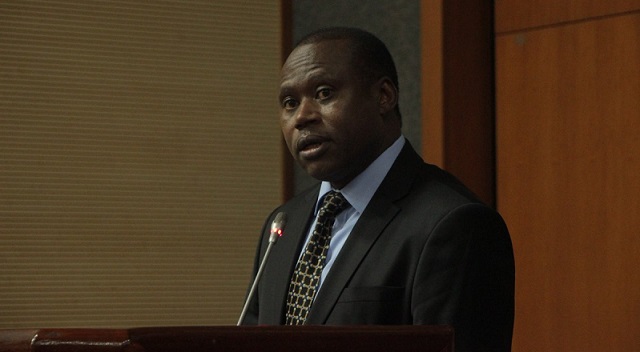
All eyes on Made-in-Rwanda
Kampala, Uganda | STEPHEN NUWAGIRA | The Rwanda government is looking to Made-in-Rwanda initiative, improving infrastructure and creation of more jobs to transform the country into a high income economy to ensure high standards of living for citizens. That is the vision the nation’s budget framework paper indicates.
The strategy seeks by support agricultural production to drive growth and ensure sustainable development.
The government also plans to expand exports to further bring down the country’s trade deficit. Continued promotion of import substitution is supposed to go hand-in-glove with diversification of the exports, according to the document presented to Parliament on April 30.
Rwanda’s trade deficit shrank by 21 per cent to $1271.9m in 2017, down from $1624.6m the previous year. Still, Rwanda is aggressively promoting a domestic market recapturing strategy, where it plans to increase production of some products like cement, iron sheets, and medicines with a view of reducing its expanding import bill.
The government is also encouraging consumption of locally-made products under the Made-in-Rwanda initiative to reduce exposure to external shocks and trade imbalances.
A study by the trade ministry indicates that the country could save almost $450 million per year in foreign exchange through domestic market recapturing strategy.
“The Made-in-Rwanda initiative will continue to play a key role in narrowing the current account deficit in the short to long-run and help to consolidate private sector domestic activities, create jobs and boost economic growth,” according to the Minister of Finance and Economic Planning, Dr Uzziel Ndagijimana. He explains that the policies and strategies behind the Budget Framework Paper for the medium-term are hinged on government’s aspiration to transform Rwanda into high income economy and ensure high living standards of Rwandans by 2050.
A Budget Framework Paper outlines government’s economic policies for the medium-term and lays the foundations of the next fiscal budget. The government plans to strengthen job-creation initiatives under the Kora Wigire (NEP) programme. It targets of 216,717 new projects to be created in 2018/2019 FY as it moves to reduce poverty among the masses and ring down unemployment levels, especially among the youth.
The minister presented the Budget Framework Paper to a joint session of Parliament.
Rwanda plans to spend Rwf2,443.5 billion in the fiscal year 2018/19, which is Rwf328.2 billion higher compared to Rwf2,115.3 billion in the current 2017/18 revised budget. Of this, 62 per cent or Rwf1508.7 billion will be raised from domestic revenues (both tax and non-tax), while external grants are estimated at Rwf396.3, equivalent to 16 per cent of total budget, and external loans are projected at Rwf400.9 billion, representing 16 per cent of budget. Over Rwf137.7 billion on the money (6 per cent of total budget) is expected to be got from domestic loans. The country’s recurrent budget is projected to be Rwf1,305.7 billion, while development expenditure is estimated at Rwf897.1 billion. Net lending is projected at Rwf190 billion which will be used to finance key government projects, such as construction of Bugesera airport, and expansion of RwandAir operations, among others, according to the Finance minister.
Taxing imports of products made locally
As government continues to promote consumption of local products, some industrialists are suggesting it introduces a tax on imports of products similar to those already being made in the country. They argue that the move, despite being against the spirit of regional trade initiatives and the recently signed African Continental Free Trade Area agreement, will protect industries and support the growth of the young manufacturing sector.
A 25 per cent ‘luxury levy’ should be imposed on imports of products that are made in the country, as a way to “promote consumption of locally-made goods,” according to Suchir Bhatnagar, the general manager of packaging material makers, SRB Investments Rwanda. Bhatnagar argues that this (increased demand for local products) will help support growth of Rwanda’s nascent industrial sector, and build the capacity of manufacturers to produce more and increase exports. This will boost generation of foreign exchange besides helping to narrow the country expanding trade deficit, he adds.
Rwanda’s economy is projected to grow by 7.2 per cent in 2018 up from 6.1 per cent last year on the anticipated good performance of the service and agriculture sectors, and a rebound of construction activities and the mining sector. The country’s Vision 2050 and national strategy for transformation are guiding Rwanda’s development and transformation goals.
Areas of focus next fiscal year
Apart from supporting agriculture, industrial and infrastructure development, next financial year’s budget seeks to enhance the quality of education in schools to meet the needs of the labour market and to promote small business and enterprises (SMEs). It will also support development of public transport system, especially in the city of Kigali, as well as that of the tourism sector as it targets to become a hub for hosting international conferences and meeting under the country’s MICE strategy. Improving access to healthcare and fighting malnutrition are the other focus areas.
Ndagijimana’s proposal will be scrutinised by parliament before it’s approved. Rwanda like other EAC countries will read its budget early next month.
 The Independent Uganda: You get the Truth we Pay the Price
The Independent Uganda: You get the Truth we Pay the Price



